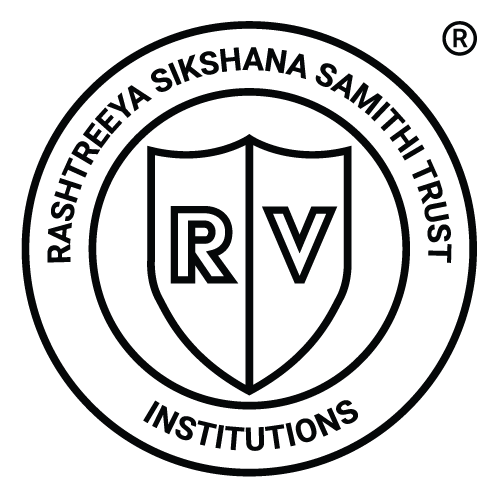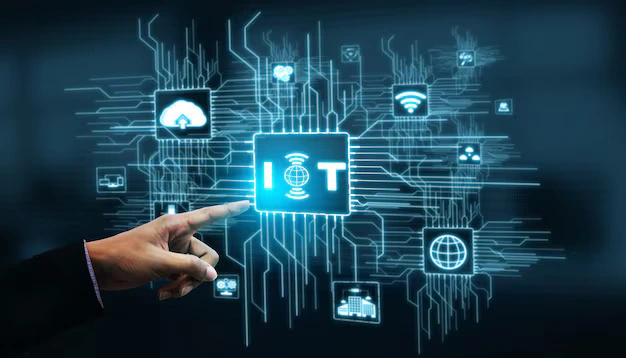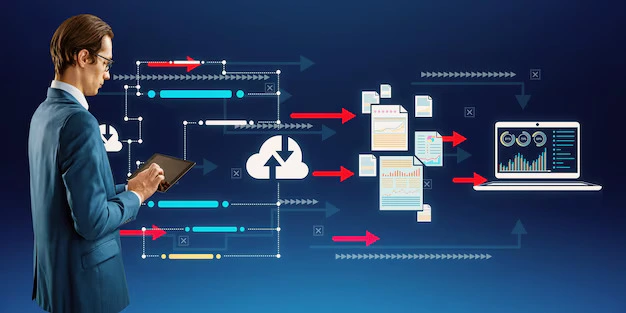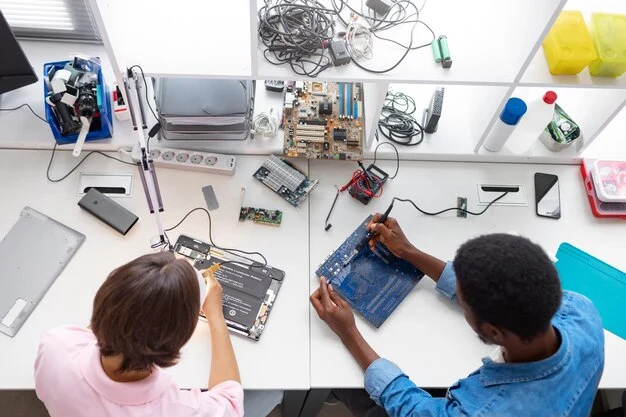The technology landscape is evolving faster than ever, and engineers who adapt to these changes are shaping the future. As we move toward 2025, fields like VLSI (Very Large Scale Integration), IoT (Internet of Things), and AI (Artificial Intelligence) are driving innovation across industries — from semiconductors to smart devices and automation.
For Electronics, Electrical, and Computer Science engineers, these domains present immense career potential, offering opportunities to work on technologies that power our connected, intelligent world.
At RV Skills, we focus on equipping students with practical, hands-on expertise in VLSI, IoT, and AI to help them stay ahead of industry trends and secure high-impact roles in the tech ecosystem. Let’s explore the top emerging career opportunities in these domains that engineers should prepare for in 2025 and beyond.
1. VLSI Design Engineer
VLSI (Very Large Scale Integration) forms the foundation of all modern electronics. A VLSI Design Engineer is responsible for creating integrated circuits that power everything from smartphones and laptops to automobiles and IoT devices.
Key Skills: Digital electronics, Verilog, VHDL, logic design, and simulation tools like Cadence and Synopsys.
Career Scope: With the global semiconductor shortage and India’s growing chip design initiatives, VLSI engineers are in massive demand.
2. Physical Design Engineer
A Physical Design Engineer converts logical circuit designs into actual chip layouts while ensuring performance, power, and area efficiency.
Key Skills: Knowledge of timing analysis, power optimization, placement, and routing.
Career Scope: As chip complexity increases, physical design engineers are critical to ensuring high-speed, low-power hardware performance.
3. Verification Engineer
Verification engineers play a crucial role in ensuring that VLSI designs function correctly before production. They simulate and test every logic and circuit block.
Key Skills: SystemVerilog, UVM, test bench creation, and functional verification.
Career Scope: Demand for skilled verification engineers continues to rise as chip functionality becomes more intricate.
4. IoT Developer
The Internet of Things (IoT) connects billions of devices globally, from home appliances to industrial systems. IoT Developers design, build, and integrate smart solutions that enhance connectivity and automation.
Key Skills: Embedded C/C++, Python, MQTT, cloud integration, and microcontrollers.
Career Scope: With the rise of smart cities, connected cars, and industrial automation, IoT developers will be among the most in-demand professionals in 2025.
5. Embedded Systems Engineer
Embedded engineers design the firmware that powers smart devices. They integrate hardware and software to ensure optimal performance and functionality.
Key Skills: Microcontrollers, RTOS, C/C++, and debugging tools.
Career Scope: The expansion of IoT and robotics is opening vast opportunities in embedded systems, especially in consumer electronics, healthcare, and automotive sectors.
6. AI and Machine Learning Engineer
AI engineers develop intelligent systems that can analyze data, recognize patterns, and make decisions — powering innovations like self-driving cars, smart assistants, and predictive analytics.
Key Skills: Python, TensorFlow, data science, deep learning, and neural networks.
Career Scope: AI is expected to create millions of jobs by 2025, making it one of the most lucrative fields for engineers transitioning into data-driven roles.
7. Data Scientist (AI & IoT Analytics)
With the explosion of IoT devices, massive amounts of data are being generated every second. Data Scientists analyze and interpret this data to optimize system performance and enhance automation.
Key Skills: Python, SQL, machine learning, big data analytics, and visualization tools.
Career Scope: IoT-driven analytics will dominate industrial operations, healthcare, and smart infrastructure by 2025.
8. Robotics and Automation Engineer
Robotics engineers work at the intersection of AI, Embedded Systems, and IoT, building machines that perform human-like or repetitive tasks autonomously.
Key Skills: Embedded programming, machine vision, AI algorithms, and mechatronics.
Career Scope: Robotics is a rapidly expanding field in manufacturing, healthcare, and defense, with increasing demand for skilled engineers.
9. Cloud and Edge Computing Engineer
With billions of connected IoT devices, Edge Computing and Cloud Integration have become essential for real-time data processing and storage. Engineers in this field design and manage distributed computing systems.
Key Skills: Cloud platforms (AWS, Azure), networking, IoT architecture, and containerization (Docker, Kubernetes).
Career Scope: As companies adopt edge-enabled IoT systems, engineers who understand hybrid computing will be in high demand.
10. AI Hardware Engineer (VLSI + AI Integration)
AI hardware engineers bridge the gap between VLSI design and AI algorithms, developing custom chips (like GPUs and NPUs) optimized for AI workloads.
Key Skills: VLSI design, digital architecture, and AI model optimization.
Career Scope: As AI models grow more complex, AI-specific hardware innovation will be a major growth area in semiconductor technology.
Why These Careers Matter for Future Engineers
At RV Skills – Shaping Future-Ready Engineers
At RV Skills, we prepare students to take advantage of these emerging opportunities through project-based learning, advanced lab training, and expert mentorship. Our programs in VLSI Design, Embedded Systems, IoT, and Artificial Intelligence are designed to align with current industry demands and future skill requirements.
Whether you aspire to design powerful chips, develop intelligent systems, or innovate the next generation of IoT solutions, RV Skills provides the foundation and practical exposure to make it happen.
learning leads to lifelong success.
The future belongs to engineers who can bridge the gap between hardware, software, and intelligence. As industries move toward digital transformation, careers in VLSI, IoT, and AI will not only be in demand but also define the world we live in.
Start your journey with RV Skills — where knowledge meets innovation, and passion turns into a profession.
Unlock your future in VLSI, IoT, and AI with RV Skills — Building the next generation of tech innovators.





